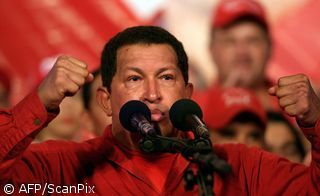Touted by the East German leadership as a barrier against "fascist provocation," the Wall was really an attempt to stop waves of skilled workers and educated people leaving a repressive state
Published:
10 November 2004 y., Wednesday
Touted by the East German leadership as a barrier against "fascist provocation," the Wall was really an attempt to stop waves of skilled workers and educated people leaving a repressive state. Around 3 million fled between 1945 and 1961, when the Wall went up. In time, it became etched in the Western consciousness as a symbol of inhumanity. More than 100 people were picked off by border guards while trying to escape; dozens of others were killed by mines.
However, by November 9, 1989, deep political shifts had prepared the ground for an earthquake. Leader Erich Honecker had been forced to resign and 4 million people had demonstrated for democracy. On that momentous day, the government's spokesman Guenther Schabowski announced that East Germans could go to West Germany if they applied for a visa.
Within minutes, people swarmed around the wall's border posts in what amounted to a siege. At midnight, they broke through to West Germany. That sounded the death knell for the Cold War and set the stage for German reunification a little more than a year later. But 15 years on, a very different kind of mass mobilisation took place. The demonstrations in Leipzig this August highlighted the economic plight of the former East German regions, where unemployment is double that of the western part.
When the old regime collapsed, many skilled workers found themselves on the wrong side of supply-and-demand economics.
Šaltinis:
euronews.net
Copying, publishing, announcing any information from the News.lt portal without written permission of News.lt editorial office is prohibited.
The most popular articles
 For three days now these group of Venezuelan students have not eaten any food - they're staging a hunger strike against President Hugo Chavez.
more »
For three days now these group of Venezuelan students have not eaten any food - they're staging a hunger strike against President Hugo Chavez.
more »
 Contest challenges young people from Europe and beyond to find creative solutions to real-life problems.EU-sponsored contest challenges young people to think creatively.
more »
Contest challenges young people from Europe and beyond to find creative solutions to real-life problems.EU-sponsored contest challenges young people to think creatively.
more »
 In time-honoured tradition it's time for Hamburg's swans to head to their winter quarters.
more »
In time-honoured tradition it's time for Hamburg's swans to head to their winter quarters.
more »
 On 24 November, Lithuania’s Minister of Foreign Affairs Vygaudas Ušackas will attend the ceremony during which the Ambassador of the People's Republic of China to Lithuania Tong Mingtao will hand over the aid to the residential care centre “Vilties Namai” in Vilnius.
more »
On 24 November, Lithuania’s Minister of Foreign Affairs Vygaudas Ušackas will attend the ceremony during which the Ambassador of the People's Republic of China to Lithuania Tong Mingtao will hand over the aid to the residential care centre “Vilties Namai” in Vilnius.
more »
 If your airline goes bankrupt and leaves you stuck what are your legal rights? Wednesday at midday a crucial vote will be held by MEPs in Strasbourg that could clear the way for the setting up of a compensation fund for stranded passengers.
more »
If your airline goes bankrupt and leaves you stuck what are your legal rights? Wednesday at midday a crucial vote will be held by MEPs in Strasbourg that could clear the way for the setting up of a compensation fund for stranded passengers.
more »
 EU support for volunteering should be stepped up to €10 million, as part of the 2011 European Year of Voluntary Activities Promoting Active Citizenship, said the Education and Culture Committee on Monday evening.
more »
EU support for volunteering should be stepped up to €10 million, as part of the 2011 European Year of Voluntary Activities Promoting Active Citizenship, said the Education and Culture Committee on Monday evening.
more »
 Jacques Barrot and Luc Van den Brande to co-chair conference assessing the implementation of child rights by local and regional authorities.
more »
Jacques Barrot and Luc Van den Brande to co-chair conference assessing the implementation of child rights by local and regional authorities.
more »
 Europeans will soon have a new way of getting the commission to act on issues that concern them. But how will the new citizens’ initiative work in practice?
more »
Europeans will soon have a new way of getting the commission to act on issues that concern them. But how will the new citizens’ initiative work in practice?
more »
 In Ukraine local communities are directly affected by climate change impacts.
more »
In Ukraine local communities are directly affected by climate change impacts.
more »
 Ageism is growing problem – or so most Europeans think.
more »
Ageism is growing problem – or so most Europeans think.
more »